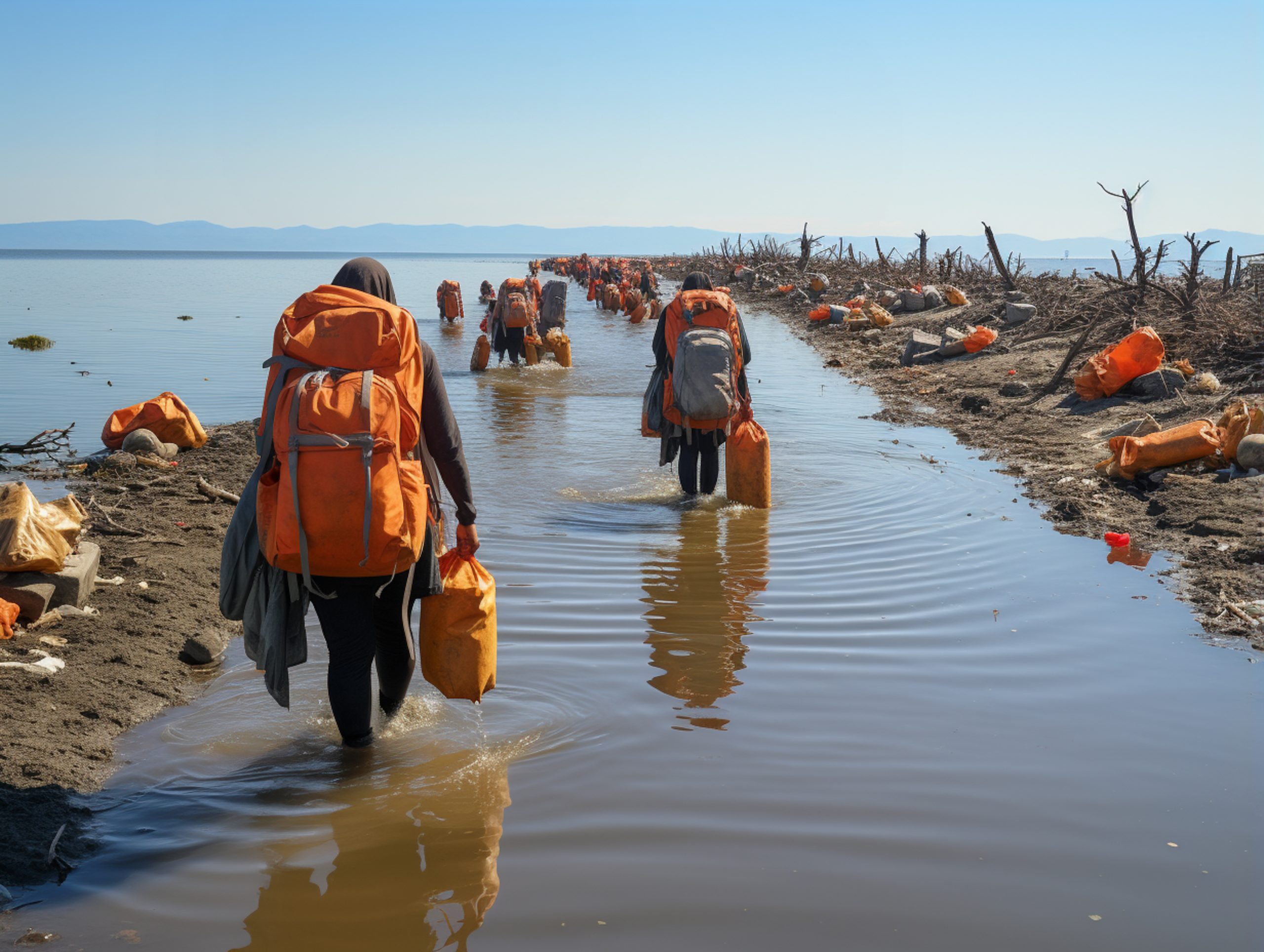Summary
- Morocco, Tunisia, and Algeria are increasingly becoming destination countries for migrants from sub-Saharan Africa.
- To differing degrees, each country is moving towards ‘security first’ policies on migration management.
- Maghreb governments are making this shift partly in response to rising public dissatisfaction with migrants’ growing presence in their countries, especially in urban coastal regions.
- This change in attitude among the general public combined with evolving policy approaches are likely to limit EU countries’ ability to ‘externalise’ migration management to North African states.
- The EU can assist Maghreb governments to improve their domestic migration management systems by providing tailored support, thereby at least partially helping authorities assuage North African citizens’ concerns.
The end of an era
In what may be the first gathering of its kind, in April 2024, the president of Tunisia, the president of Algeria, and the head of Libya’s presidential council convened in Tunis. They had come together for an inaugural meeting on boosting regional cooperation. Migration emerged as a focal point, and the three parties agreed to examine how to better coordinate border security and cooperate on migration-related problems. The leaders resolved to present a unified stance on the issue in their discussions with both European and sub-Saharan African states.
The event was notable because the countries of North Africa have long resisted deepening regional cooperation with one another. Yet the leaders’ interest in migration was perhaps no surprise. Rising numbers of people arriving in the region – and growing social tensions related to arrivals – are causing governments in the Maghreb to shift their stance. This follows many years of talks, agreements, and deals between North African states and their European counterparts which effectively boil down to an effort to deter and prevent migrants from crossing the Mediterranean into Europe.
Yet that era may now be coming to an end. This policy brief argues that Maghreb governments’ attitudes to sub-Saharan African migration are changing in ways that European policymakers – who are still heavily preoccupied with ‘externalising’ migration management to North African states – must grasp. The Tunis summit suggests Maghreb countries’ political leadership might yet conclude they no longer want to serve as Europe’s border guards. Moreover, even when North African governments agree to externalisation arrangements with the European Union, these are increasingly unlikely to find favour among their citizens. At the same time, rising migration flows into the Maghreb have brought novel challenges that governments lack the experience – and often the willingness – to address comprehensively.
The paper presents an overview of key migration trends in Morocco, Algeria, and Tunisia. It discusses the domestic implications of an increase in migrant arrivals and analyses how governments have approached this issue. The paper concludes that both governments and societies in these countries are increasingly unwilling to serve either as buffer zones for European states or as destination countries for sub-Saharan migrants.
The pressure on Maghreb countries’ borders means they are encountering challenges that are not dissimilar to those that European countries have long grappled with. Though their situations are by no means identical, the growing convergence of challenges between these North African states’ experience of migration and those of Europe also present an opportunity. European policymakers can make a new offering to Maghreb states that draws on their own experience and provides practical solutions to the new type of challenge. This can include assistance on developing domestic migration management systems, enhancing data collection to underpin future decisions in this arena, and improving returns processes.
About the author:
Tasnim Abderrahim is a visiting fellow with ECFR’s Middle East and North Africa programme. Her work focuses on migration in the EU-North Africa region, decentralisation, local governance and Tunisia’s foreign relations.


